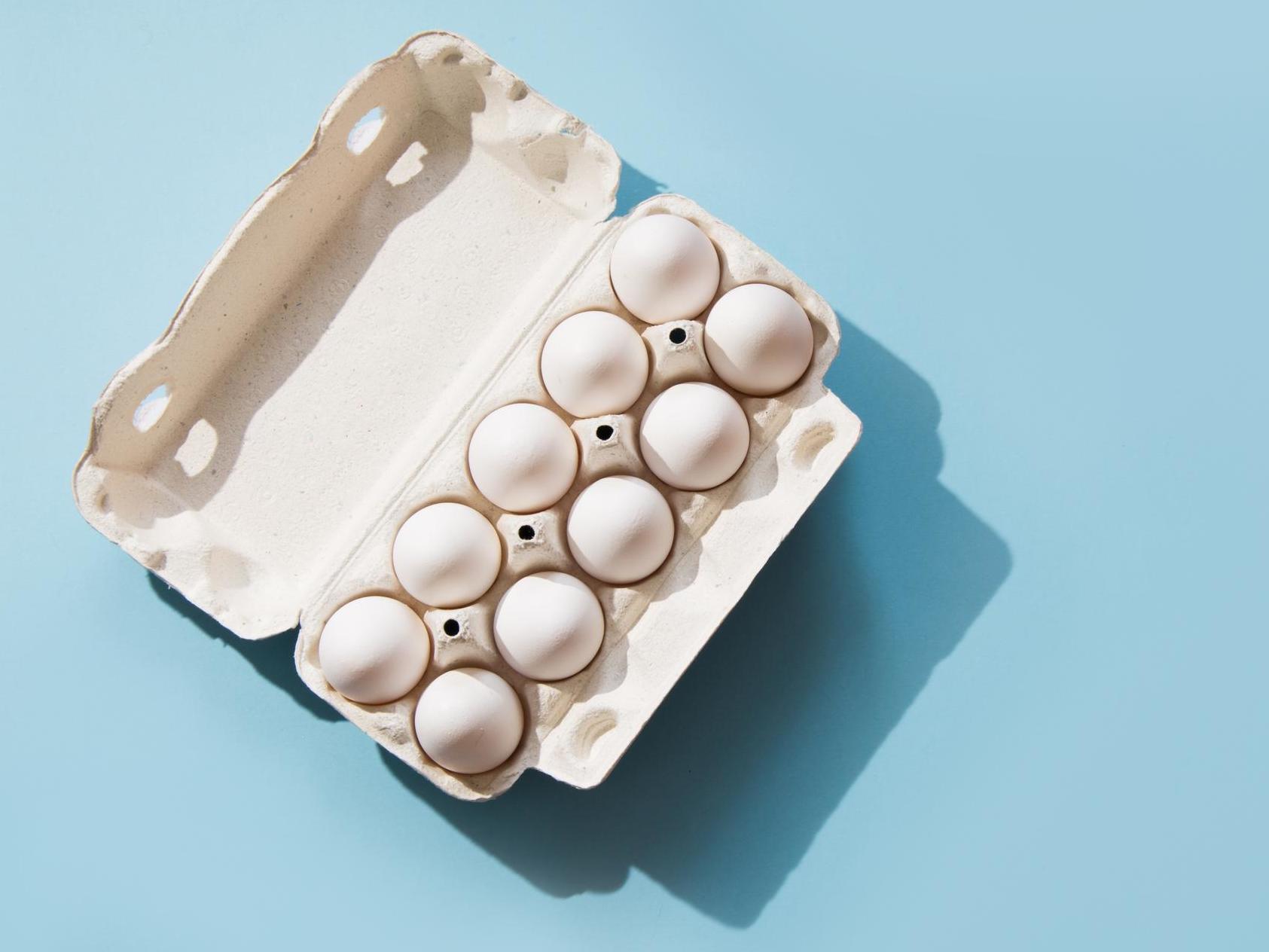Tesco begins selling white eggs for the first time in 40 years following increased demand during lockdown
Supermarket says shoppers can be ‘assured of their quality’

Your support helps us to tell the story
From reproductive rights to climate change to Big Tech, The Independent is on the ground when the story is developing. Whether it's investigating the financials of Elon Musk's pro-Trump PAC or producing our latest documentary, 'The A Word', which shines a light on the American women fighting for reproductive rights, we know how important it is to parse out the facts from the messaging.
At such a critical moment in US history, we need reporters on the ground. Your donation allows us to keep sending journalists to speak to both sides of the story.
The Independent is trusted by Americans across the entire political spectrum. And unlike many other quality news outlets, we choose not to lock Americans out of our reporting and analysis with paywalls. We believe quality journalism should be available to everyone, paid for by those who can afford it.
Your support makes all the difference.White eggs are making a comeback at Tesco after more than 40 years to help keep up with consumer demand during the coronavirus lockdown.
The reintroduction of the eggs follows a successful trial by the UK supermarket, which has reported a 30 per cent increase in sales of the protein-rich food.
It is hoped that the white eggs, which were originally destined for McDonald’s breakfast McMuffins, will help the retailer keep its customers happy while also supporting suppliers and avoiding waste.
Jean-Paul Michalski, the director of Noble Foods, which is supplying Tesco with the eggs, told the Guardian: “Generally our white eggs are sold to a very large global restaurant chain which unfortunately had to close its doors because of the pandemic. They are also used within egg processing where the egg is broken into a liquid to be used for food manufacturers, hotel or restaurants.
“None of our standard retail customers stock white eggs so we are really grateful to Tesco for stepping in as the white eggs would have gone to waste.”
The eggs will cost the same as the brown free-range equivalent, starting from 89p for a box of six medium eggs and £1.69 per dozen.
Up until the 1970s white eggs were popular in the UK, however shoppers began switching to the brown variety under the misconception that they are more “rustic” or “natural".
As a result there are now very few white egg-laying flocks in the UK; down to an estimated 250,000-300,000 of the 40m egg-laying birds in the UK.
Megan Kilby, eggs buying manager at Tesco, said that the move to white eggs could also have a “massive agricultural benefit”.
“The initial trial during the lockdown has been a success and we will now be stocking white free range eggs for the first time in more than 40 years,” she explained.
“These eggs are used throughout the restaurant industry so shoppers can be assured of their quality.
“The move could also have a massive agricultural benefit as white hens are more docile than brown ones and lay eggs for longer and more reliably too.”
Earlier this year, The British Free Range Egg Producers Association also urged consumers to buy white eggs in a bid to help reduce animal cruelty.
This is because the farming of brown eggs requires hens to have their beaks trimmed with an infrared laser beam, which it is argued causes high levels of distress to the birds.
The British Hen Welfare Trust states that it is common practice to trim just the tip of the beak in the UK and is carried out ultimately to protect birds from hurting each other.
Unlike hens which lay brown eggs, white birds are said to be less aggressive.
“White birds are more docile and like their own space and they just do not peck each other’s feathers as much as brown birds,” Tim Bradley, a farmer from Lincolnshire told the Daily Mail, adding that white birds are also better for the environment because they eat less grain, meaning less crop needs to be grown to feed them.
Join our commenting forum
Join thought-provoking conversations, follow other Independent readers and see their replies
Comments